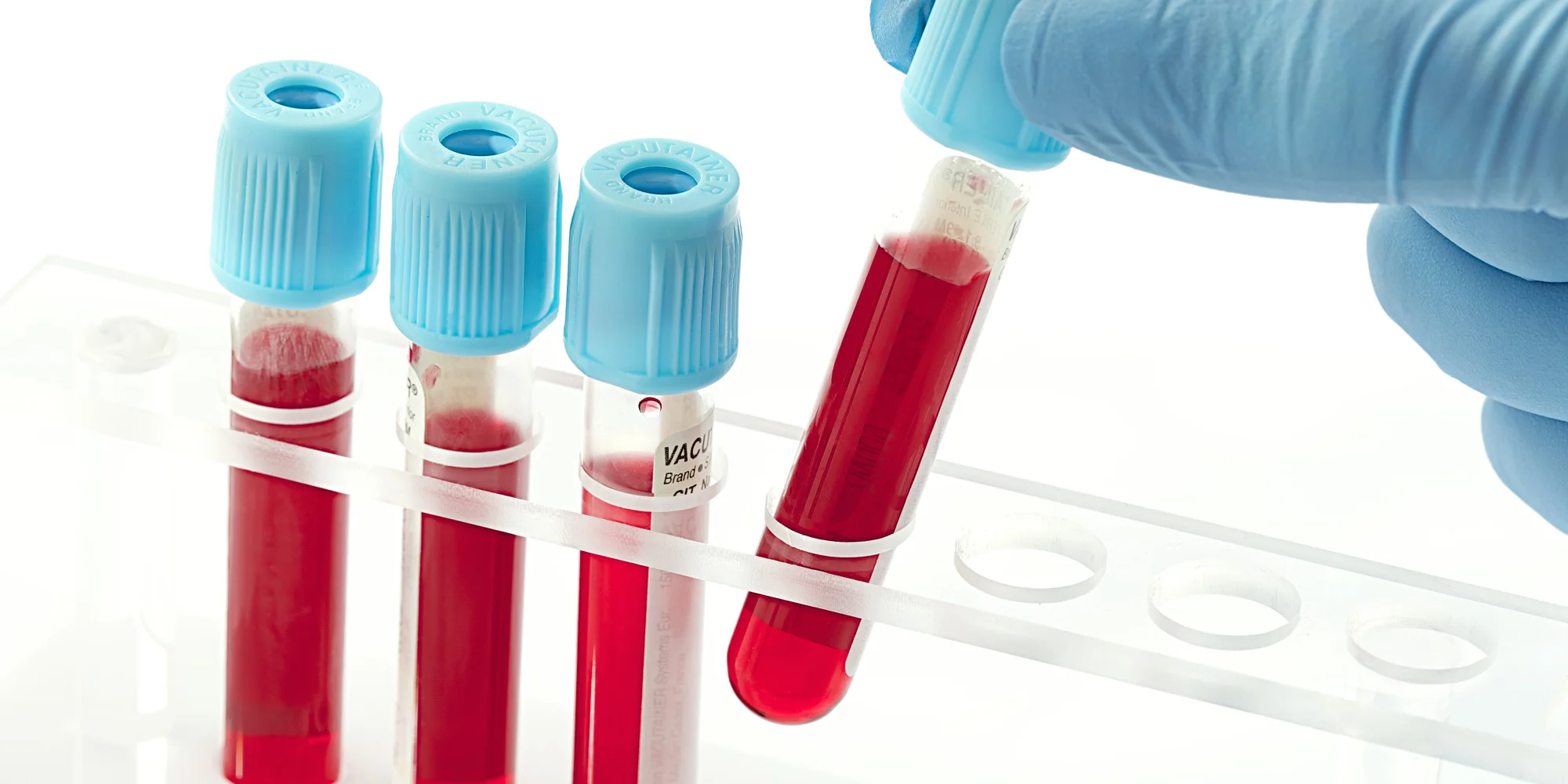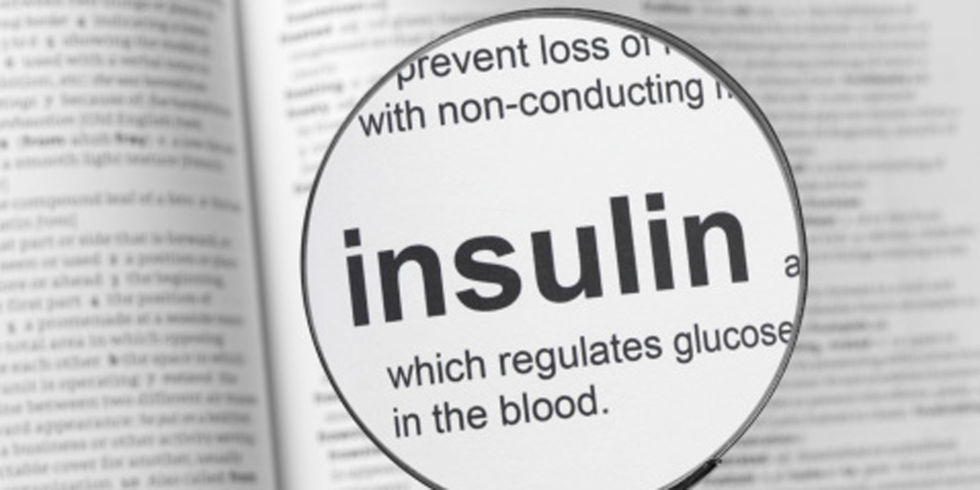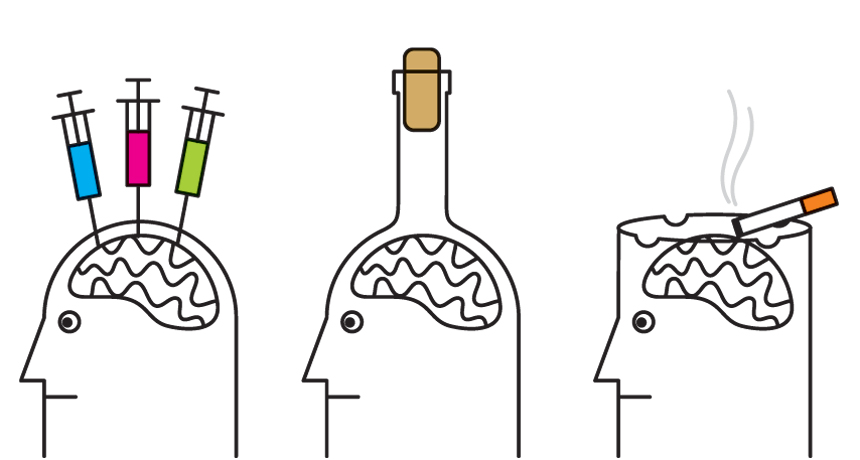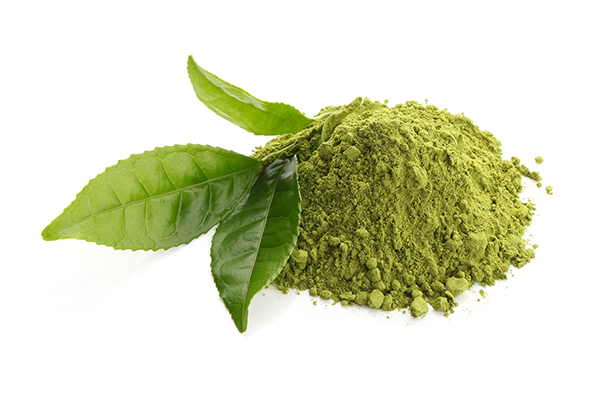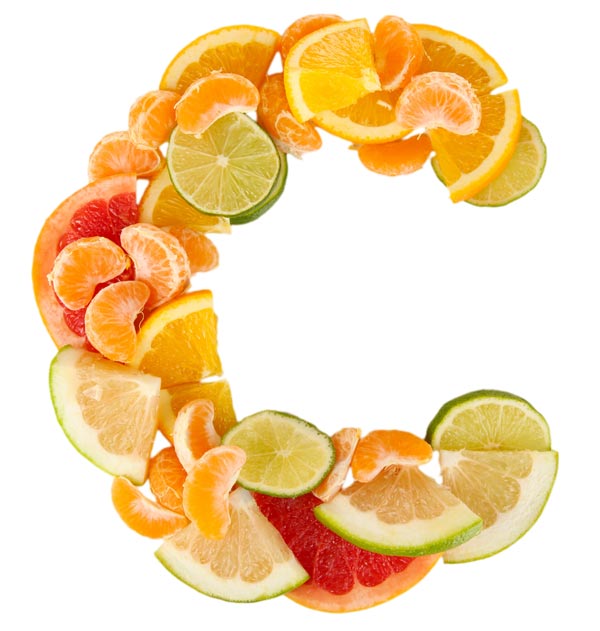Isn't it weird that when you go to a psychiatrist for depression, they don't even run any blood tests?
Some do.
But many don’t.
They simply talk to you for a bit, then give you a prescription and send you on your way.
Hell, they don't even scan and look at your brain, the very thing they are trying to treat.
You'd think that they would actually try to find something wrong with you and show that to you.
You know, like actually demonstrate that you have a "chemical imbalance" before trying to balance you out chemically.
But they don't.
They just throw pills at you and cross their fingers they will help.
Weird isn't it?
Some days I wake up and wonder how conventional psychiatry is even taken seriously.
It claims to be "science-based medicine" but it sure seems like quackery to me.
And even the National Institute of Mental Health (NIMH) is catching on.
The NIMH no longer funds research based on the Diagnostic and Statistical Manual (DSM) of Mental Disorders, which is the primary tool used by psychiatrists to diagnose people with psychiatric disorders.
Why?
Because they say the manual doesn't provide any data or evidence about the cause of mental illnesses, including depression (96).
“The weakness of the manual is its lack of validity. Unlike our definition of Lymphoma or AIDS, the DSM diagnoses are based on consensus about clusters of clinical symptoms, not any objective laboratory measures. Patients with mental disorders deserve better.”
Exactly – you deserve better.
The current state of psychiatry is essentially a bunch of doctors making diagnoses based on symptoms without actually testing to determine root cause.
It’s insane.
You're not.
And it’s time for a paradigm shift.
The mainstream medical literature is full of peer-reviewed studies that look at the underlying factors contributing to depression and other mental health symptoms.
Yet conventional psychiatry doesn’t pay attention to the findings of its own literature, or the literature of the other medical disciplines.
Psychiatrists simply ignore it.
But that doesn't mean you have to.
Why You Should Demand Blood Tests from Your Psychiatrist
“Unless you test, you’ve guessed.”
I'll admit - when I originally started trying to figure out my depression, I also did a lot of guessing and not enough testing.
That made things much more difficult, and I ended up making a lot of mistakes along the way.
That's why I recommend you test more, and guess less.
Otherwise, it’s hard to know for sure what steps you should take to correctly treat and overcome your depression.
The underlying issues that contribute to depression are different for everyone.
But blood testing can show you the inner functioning of your body, highlight your physiological abnormalities, and help you identify the underlying root causes of your depression so that you can address them using nutrition, supplements, therapies and other lifestyle factors.
Below are 13 important blood tests that you should get done if you struggle with depression.
These blood tests shine light on some of the real, underlying root causes of depression, and will give you helpful information to act upon.
When something is outside the optimal range, you can then do something about it!
They put the power back into your hands, and give you a much better idea of where you should begin, so that you can get better faster, and overcome your depression sooner rather than later.
1. High-sensitivity C-reactive protein (hsCRP)
C-reactive protein (CRP) is a substance produced by the liver. It increases in the presence of inflammation in the body, and a high level of CRP in the blood is a marker of systemic inflammation.
It’s obviously very important to test for CRP because an increasing amount of research suggests that depression is an inflammatory disease and many depressive symptoms may simply be a “side effect” of chronic, low-grade inflammation in the body and brain (93).
On top of this, numerous studies and a meta-analysis have found that elevated CRP is significantly associated with depression (94-95).
Yet how many psychiatrists test for CRP?
Not many.
But you don’t have to wait around for them to check your levels.
You can order your own high-sensitivity CRP test.
If your levels come back high, you’ll need to take steps to fight back against the inflammation and dampen it.
My first recommended step would be to follow an anti-inflammatory diet.
My Free Grocery Shopping Guide for Optimal Mental Health is full of anti-inflammatory foods that you eat freely, and doesn’t include foods that are likely to increase your inflammation.
One way to reduce brain inflammation is by supplementing with curcumin, which is included in this supplement.
In fact, curcumin has been shown to be as effective as Prozac in treating depression, likely because of its anti-inflammatory effects.
Omega-3 fatty acids can also reduce inflammation.
Other steps you can take to reduce inflammation include reducing stress, improving gut health, treating infections, getting enough sleep, etc.
Make sure you also check out this article for 23 effective ways to reduce inflammation in the brain.
2. Vitamin D - 25(OH)D
Vitamin D is a fat-soluble vitamin that your skin synthesizes when exposed to the sun.
Every tissue in your body has Vitamin D receptors, including the brain, so a deficiency can lead to costly physiological and psychological consequences, including depression.
Researchers have evaluated the effects of Vitamin D on mental health and found those with the lowest levels of Vitamin D were 11 times more likely to be depressed than people with healthy levels (3).
In fact, one study found that 60 percent of the suicidal patients were deficient in Vitamin D. The patients also had higher inflammatory markers in their blood, suggesting that low levels of Vitamin D could be a cause of the inflammation (5).
Unfortunately, reports from across the world indicate that Vitamin D deficiency is widespread and a major health problem globally (1).
Researchers estimate that 50 percent of the general population is at risk of Vitamin D deficiency (2).
That’s why it’s so important to get your levels checked regularly (at least once each year).
If you have low levels, optimizing your Vitamin D levels can then reduce inflammation and improve your mood.
Research shows that improvement in Vitamin D levels is significantly associated with improvement in depression scores in people with Seasonal Affective Disorder (SAD) (4).
It’s best to get your Vitamin D by going outside and getting sunlight, but some people can’t get enough, especially during the winter.
That’s why I recommend supplementing with Vitamin D3 if you're low.
Vitamin D can also help with addiction and withdrawal, support the blood-brain barrier and reduce brain fog.
3. Thyroid Panel
“There’s a very tight correlation between hypothyroidism and depression. Unfortunately, patients are misdiagnosed with depression when really they have low thyroid. There are well designed clinical trials to show you that your active thyroid hormone is essential to a happy mood. Correcting and nourishing the thyroid gland is absolutely imperative in order to improve mood.”
– Suzy Cohen, Pharmacist, Author of Thyroid Healthy: Lose Weight, Look Beautiful and Live the Life You Imagine
Your thyroid is a small butterfly-shaped gland located in your neck below your Adam’s apple.
It’s one of your most important glands, producing thyroid hormones – thyroxine (T4) and triiodothyronine (T3) – which impact the health and functioning of your entire body.
Lots of research shows that thyroid dysfunction and low levels of thyroid hormones (hypothyroidism) can contribute to depression.
One of the most common causes of hypothyroidism is an autoimmune disease called Hashimoto’s thyroiditis, in which the body’s immune system attacks the thyroid tissue.
According to Dr. Datis Kharrazian, author of Why Isn’t My Brain Working? and Why Do I Still Have Thyroid Symptoms?, 90% of people with hypothyroidism have Hashimoto’s.
Here are some of the symptoms of low thyroid that I’ve personally experienced:
Chronic fatigue
Low mood
Weakness
Sluggishness
Sounds just like depression, doesn’t it?
Many people are diagnosed with depression and given antidepressants when in reality they have an underlying thyroid issue that is making them feel depressed.
That’s why I highly recommend getting done a complete thyroid panel.
A high-quality thyroid panel should measure Thyroid Stimulating Hormone (TSH), Free Triiodothyroine (fT3), Free Serum Thyroxine (fT4), and Thyroid Antibodies.
Some doctors will only test for TSH, but that is definitely not enough. Others will test for TSH, T3, and T4 but not assess the autoimmune status of the thyroid gland.
If you have low thyroid levels, treating the underlying hypothyroidism is critical to alleviating the depressive symptoms. Thyroid hormone replacement can often make people feel remarkably better and lift their depression completely.
Nutrition and lifestyle factors are also necessary steps in treating hypothyroidism.
Check out this post for the 13 ways that I’ve supported my thyroid and increased the production of my thyroid hormones over the years.
My favourite ways is low-level laser therapy.
4. Vitamin B12
“Lack of understanding of B12 is one of the greatest tragedies of modern medicine.”
– Dr. James Greenblatt, Integrative Psychiatrist, Author of Breakthrough Depression Solution: Mastering Your Mood with Nutrition, Diet & Supplementation
Getting your Vitamin B12 levels checked is another very important step to take if you want to manage and overcome depression.
Having sufficient levels of Vitamin B12 is necessary for your brain to work properly.
But deficiency is very common, especially in older individuals and vegetarians and vegans.
In fact, it’s estimated that almost 40% of Americans are deficient!
Poor gut health and even psychiatric medications can cause B12 deficiency.
Research shows that if you are depressed, you likely have lower levels of B12 circulating in your blood, and people with low levels of B12 are also at greater risk of developing depression (6-7).
Yet, instead of looking at B12 levels in the blood, psychiatrists often prescribe antidepressants that have been shown to further deplete B12.
This happened to me. My levels were never tested. I was simply given medications, which further depleted my Vitamin B12 levels.
Other symptoms of B12 deficiency include memory loss, fatigue, irritability, apathy, personality changes, etc. The list goes on and on.
If your levels are low, you will need to take the methylated form of Vitamin B12 (methylcobalamin, or methyl-B12).
You should avoid the semisynthetic version of B12 (cyanocobalamin). Methyl-B12 is better absorbed and more biologically active. It’s included in this supplement.
You can also get B12 from food, primarily animals. Beef liver is a really good source. I also take beef liver capsules because I don’t like the taste of liver.
But keep in mind that you can also have normal or high B12 levels but then still be B12 deficient on a cellular level. That is very common in my clients, and I talk about that in my workshop presentation. You can register for the free workshop here.
Optimizing your B12 levels is also important if you want to promote the regeneration of myelin, lower your homocysteine levels, and reverse brain damage and cognitive decline.
5. Estradiol
Estradiol is an estrogen and the primary female sex hormone, responsible for the development and regulation of the female reproductive system.
It plays a significant role in the mental health of women.
There is a strong link between estradiol, mood and wellbeing. In fact, depression is correlated with sudden drops or fluctuations in estradiol, and long periods of sustained low levels of estrogen (8).
And research shows that stabilizing or restoring estrogen levels can help women recover from depression (postpartum, perimenopause, and postmenopause) (9).
Estradiol has also been shown to increase the brain’s secretion of oxytocin, which is powerful hormone that acts as a neurotransmitter in the brain. Low levels are linked to depression (10-12).
You can check your levels here.
6. Testosterone (Free and Total)
When I lived in a moldy home, suffered multiple concussions and was placed on antidepressants, my testosterone plummeted.
Conventional doctors didn’t test my testosterone because they assumed every a man in his 20s would have healthy levels.
But they were wrong.
Eventually I saw a doctor and he found out that I had the testosterone levels of an old man.
I was put on testosterone replacement therapy for almost one year to get my levels back to normal. And over that time, I saw a huge reduction in my depression.
This is because there is plenty of research showing that low testosterone levels can lead to symptoms of depression in men (14).
And a systematic review and meta-analysis found that testosterone replacement has antidepressant effects in depressed patients (13).
Your doctor will test your total testosterone levels. But it’s just as important to also check you free testosterone levels.
You can test your total and free levels here.
If your levels are low, it would be wise to try testosterone replacement therapy, at least for a little while, until you find out why you have low testosterone.
Testosterone can also promote the regeneration of myelin and reduce brain fog.
7. Magnesium (Red Blood Cell)
“The possibility that magnesium deficiency is the cause of most major depression and related mental health problems including IQ loss and addiction is enormously important to public health and is recommended for immediate further study”
Magnesium is a vital mineral that participates in more than 300 biochemical reactions in your body. This includes neurotransmitter and hormonal activity, all of which can have a huge effect on your mood.
Research shows that low magnesium levels contribute and worsen many neuropsychiatric problems, including depression.
In fact, case studies have shown that patients with major depression who have attempted suicide had significantly lower levels of magnesium in their cerebrospinal fluid (15).
That’s why it’s so important to test your levels. You can order a lab test to check your levels here.
If you have low levels, no worries; there are a number of ways to replete them.
You can eat more foods that contain magnesium, such as spinach, chard, pumpkin seeds, almonds, avocado, dark chocolate and bananas. These foods are included in my Free Grocery Shopping Guide for Optimal Brain and Mental Health.
But supplementation or taking Epsom salt baths is still necessary for most people.
Magnesium is one of the three nutrients that I think everyone should be taking because most people are deficient nowadays. It’s included in this supplement.
Stress depletes magnesium, and unfortunately, certain antidepressants drugs can actually further deplete magnesium as well!
On the flip side, magnesium has been shown to cause antidepressant effects by significantly increasing BDNF.
And research shows recovery from major depression in less than 7 days using 100 to 300 mg of magnesium with each meal and at bedtime (16-18).
That’s why I think doctors should be testing magnesium levels and prescribing magnesium supplements – which would be something that actually gets to the root cause of depression – rather than giving out antidepressants that cover up symptoms and actually make the underlying condition worse.
Normalizing magnesium levels can also support the blood-brain barrier and help you overcome addiction and withdrawal.
8. Homocysteine
Homocysteine is an amino acid that is produced in the body as a by-product of methylation.
In healthy people, it’s properly metabolized and normal levels are maintained.
But when homocysteine isn’t properly metabolized, it can build up inside the body and levels can become too high.
And that’s when homocysteine becomes dangerous and unhealthy.
At high levels, homocysteine is inflammatory, and a lot of research shows that it is linked to depression (35-42).
Studies have found that people with high levels of homocysteine have lower levels of serotonin and SAMe, a nutrient involved in the production of many neurotransmitters that improve mood (33-34).
You can check your homocysteine levels by ordering this blood test.
If your levels are high, read this post for 16 ways to lower your homocysteine levels.
Normalizing homocysteine can also help repair the blood-brain barrier and reduce your risk of developing dementia.
9. Zinc
Zinc is an essential mineral for mental health, as it plays a key role in brain and nervous system function and neurotransmission.
So not surprisingly, having a deficiency can contribute to symptoms of depression.
Unfortunately, six different studies have found that even subclinical deficiency of zinc impairs brain function in children and adults, and it’s actually estimated that 2 billion people in the world are deficient in zinc (19-22).
So, if you struggle with depression, it’s quite possible that you’re deficient.
Mounting evidence suggests a link between low zinc levels and the development of major depression (27, 30-31).
However, too much zinc isn't healthy either. That’s why it’s best to test instead of guess.
You can check your zinc levels by ordering this zinc blood test.
Another way to find out if you’re deficient in zinc is by doing the zinc assay taste test. This is how it works:
Order liquid zinc assay
Put a teaspoon of the liquid in your mouth and mix it around
If it tastes like water, you’re likely deficient in zinc. If it tastes really bitter and gross, your zinc levels are optimal.
This is how I originally found out that I was deficient in zinc. During my initial test, the liquid tasted like water. After taking a zinc supplement for a while, I did the test again, and I had a very metallic taste in my mouth the second time around. It’s not as accurate as testing your actual levels, but it can still give you a good idea of where you stand.
If your levels are low, make sure to eat foods high in zinc. Some of the best food sources include oysters, grass-fed beef, pumpkin seeds, cashews, mushrooms and spinach. These foods are included in my Free Grocery Shopping Guide for Optimal Brain and Mental Health.
However, if you’re deficient, I recommend at least short-term supplementation.
Several studies have shown that zinc supplementation has antidepressant effects and significantly reduces symptoms of depression. One way it does this is by significantly increasing BDNF levels (23-26, 28-29, 32).
I created and take the Optimal Zinc supplement to make sure my zinc levels are optimal.
Check out my previous post about zinc and copper if you’re interested in discovering more steps you can take to increase your zinc levels.
Zinc can also stimulate the vagus nerve.
10. Celiac Disease Panel
“A grain-free diet, although difficult to maintain, especially for those that need it the most, could improve the mental health of many and be a complete cure for others.”
Celiac disease is a serious autoimmune disorder that occurs in genetically predisposed people.
When people with celiac disease eat gluten (a protein found in wheat, spelt, rye and barley), their body mounts an immune response that attacks and damages their small intestine.
It is estimated to affect 1 in 100 people worldwide, but celiac disease actually goes undiagnosed in 90% of cases, leaving them at risk for long-term health complications, including depression (46).
In fact, many people with celiac disease often struggle with depression.
One study found that major depressive disorder, dysthymic disorder, and adjustment disorders were more common in a group of celiac disease patients compared to controls (61).
And this was supported by follow-up studies (62-63).
Other researchers have found that celiac disease patients are more likely to be diagnosed with depression, but their depressive symptoms improve after following a gluten-free diet (64-65).
That’s why it’s so important to test for the disease if you struggle with depression.
Yet many doctors never do.
Even if you don’t have celiac disease, it may be beneficial for you to cut out all gluten-containing grains from your diet for 30 days and see how you feel.
Dr. Kenneth Fine, a pioneer in gluten intolerance research, has demonstrated that 1 in 3 Americans are gluten intolerant, and that 8 in 10 have the genes that predispose them to developing gluten intolerance (47-49).
And for more than sixty years, reports in the scientific literature have linked wheat and gluten sensitivity to depression (50-57).
Following a gluten-free diet significantly improved my mood (even though I didn’t have celiac disease or any digestive issues).
I completely cut it out seven years ago, and within a few weeks, I felt so much better mentally.
I also lost a bunch of weight and my asthma disappeared.
In one study, depressed patients who didn’t have digestive issues (like me) followed a gluten-free diet, and within 2-3 months, they experienced a reversal of their depressive symptoms (58).
Researchers have also found that a gluten-free diet improves depression by increasing levels of l-tryptophan – the precursor to the neurotransmitter serotonin (59).
Another study found a significant increase in serotonin and dopamine because of the removal of gluten (60).
Clearly, there is more to gluten than celiac disease, and cutting out wheat is one of the first dietary steps I recommend to people who are striving to overcome depression.
Try it out. You’ll like feel better.
And when you’re done, here are two other foods I recommend avoiding if you have depression.
The bacteria in our guts can determine the degree to which we are sensitive to foods such as gluten, so you should also try to increase the good bacteria in your gut.
11. MTHFR DNA Analysis
Methylation is one of the most important processes in your body and brain.
The methylation cycle plays a key role in the synthesis of melatonin, coenzyme Q10, and neurotransmitters such as serotonin and dopamine.
Methylenetetrahydrofolate reductase (MTHFR) is one enzyme that plays a very important role in the methylation cycle.
Most importantly, the MTHFR enzyme helps produce l-methylfolate in the body.
But some people have genetic mutations in the MTHFR enzyme, and it can lead to a number of chronic illnesses, including depression.
In fact, numerous studies have shown that MTHFR mutations are significantly associated with depression. And more than one meta-analysis has found that people with MTHFR mutations have an elevated incidence of depression (68-77).
There is also a decrease in serotonin synthesis in patients with MTHFR mutations (71-72).
Testing your homocysteine levels is one way to know if your methylation pathway is working properly. However, it is just one marker. I look at a number of different markers with my clients. If you’re interested in becoming a client, register for my workshop presentation here.
12. Lyme
“In my database, depression is the most common psychiatric syndrome associated with late stage Lyme disease.”
Lyme disease is an infectious illness caused by the bacterium Borrelia burgdorferi, which is spread by ticks (78).
Lyme disease can lead to psychiatric symptoms, including severe depression and suicidal thoughts (79-80, 83-84).
Depressive states among patients with late Lyme disease are fairly common, ranging from 26% to 66% in studies (82, 85).
Researchers have even concluded that depression in patients with Lyme encephalopathy is caused by central nervous system dysfunction and cannot be explained as a psychological response to chronic illness (81).
That’s why it’s critical to rule out Lyme disease if you’re feeling depressed.
It can sometimes be hard to ask for your doctor to test for it.
But you can check yourself by ordering a test yourself.
13. Fasting Glucose, Insulin and Hemoglobin A1C
If you’re struggling with depression, it’s also important to check your blood sugar control.
Unstable blood sugar can contribute to a number of different mental health problems, including depression.
Researchers have found that impaired fasting blood sugar is a significant predictor of depression (86).
One study found that men with undiagnosed type 2 diabetes had nearly double the odds of major depression (90).
And other studies have found that patients with depression have higher fasting glucose and HbA1c levels, and these levels correlated significantly with the severity of their depression (88-89).
A fasting glucose blood test can provide a snapshot of how much sugar is present when your body isn’t processing food. You can order the test here.
A fasting insulin blood test is also important, as it tells you how your pancreas is working when you’re not eating anything.
Research shows that depressive symptoms are associated with fasting insulin resistance (91).
You can order a fasting insulin test here.
Lastly, Hemoglobin A1C may be the most important test, as it gives you the average of your blood sugar levels over the past three months.
And researchers have found that variability in blood sugar control is significantly associated with more depressive symptoms (92).
You can order the Hemoglobin A1C test here.
Making dietary changes to control blood sugar is critical.
Check out my Free Grocery Shopping Guide for Optimal Brain and Mental Health for the best foods to eat in order to manage your blood sugar and improve your mood.
How to Order These Tests Yourself
Overall, optimizing your mental health and overcoming your depression really relies on having accurate data about your specific biochemistry.
And the above lab tests are a great way to learn about your body so that you can correct the underlying problems that are contributing to your depression.
You can go to your doctor and ask for them, but don’t be surprised if your doctor tells you they aren’t necessary and won’t order them for you.
You may have to put up a fight.
I’ve had to do that many times when I’ve requested different blood tests.
But if you’re not feeling well, it’s worth advocating for yourself.
Tell your doctor that you want a baseline assessment before taking medication.
Push back.
Remember, your doctor should be working for you.
If you get fed up, just “fire” your doctor and find a new one – one that will actually work with you and for you.
If all else fails and you can't find a doctor to run these tests, you can always just skip doctors completely and order the blood tests yourself, which can actually end up saving you a lot of time and hassle.
Walk-In Lab is a reliable and trustworthy way to do this online.
They provide direct access to blood tests from certified laboratories in the US, Canada, Europe and internationally. All blood tests are “direct-to-consumer”, meaning they allow you to pick and choose the blood tests you’d like, no doctor required.
Doctors shouldn’t have exclusive rights to information about your body anyway.
No one has a greater right to your blood test results than you do, and you should be able to access blood test results directly from the company you pay to run the labs.
Overall, there is no doubt that having direct access to blood testing, and direct access to your results, is an invaluable way for you to take control of your brain and mental health.
Great treatment starts with great testing, providing you with the information you need to put your health back into your own hands.
In summary, here are some of the blood tests I recommend you test for:
High-sensitivity C-reactive protein (hsCRP)
Vitamin D
Thyroid Panel
Vitamin B12
Testosterone - Free and Total
Celiac Disease Panel
Lyme
Fasting Glucose, Insulin and Hemoglobin A1C
Enjoy This Article? You Might Also Like My FREE Food Guide for Optimal Brain and Mental Health!
References:
(1) https://www.ncbi.nlm.nih.gov/pubmed/19543765
(3) http://www.ajgponline.org/article/S1064-7481(12)60890-2/abstract
(4) http://europepmc.org/abstract/med/10888476
(6) https://www.ncbi.nlm.nih.gov/pubmed/635065
(7) https://www.ncbi.nlm.nih.gov/pubmed/17568057
(8) https://www.ncbi.nlm.nih.gov/pubmed/17909167
(9) https://www.ncbi.nlm.nih.gov/pubmed/16292022
(10) https://www.ncbi.nlm.nih.gov/pmc/articles/PMC4606117/
(11) https://www.ncbi.nlm.nih.gov/pubmed/23007624
(12) https://www.ncbi.nlm.nih.gov/pubmed/25025656
(13) https://www.ncbi.nlm.nih.gov/pubmed/19625884
(14) https://www.ncbi.nlm.nih.gov/pubmed/24047633
(16) http://www.ncbi.nlm.nih.gov/pubmed/25027582
(17) http://www.ncbi.nlm.nih.gov/pubmed/22016520
(18) http://www.ncbi.nlm.nih.gov/pubmed/16542786
(19) http://www.ncbi.nlm.nih.gov/pubmed/19158231
(20) http://www.ncbi.nlm.nih.gov/pubmed/22664333
(21) http://www.ncbi.nlm.
(22) http://www.ncbi.nlm.nih.gov/pubmed/22673824
(23) http://www.ncbi.nlm.nih.gov/pubmed/15145706
(24) http://www.ncbi.nlm.nih.gov/pubmed/18766297
(25) http://www.ncbi.nlm.nih.gov/pubmed/24621065
(26) http://www.sciencedirect.com/science/article/
(27) https://www.ncbi.nlm.nih.gov/pmc/articles/PMC3868572/
(28) https://www.ncbi.nlm.nih.gov/pubmed/21798601
(29) https://www.ncbi.nlm.nih.gov/pubmed/24130605
(30) https://www.ncbi.nlm.nih.gov/pubmed/20689416
(31) https://www.ncbi.nlm.nih.gov/pubmed/18655800
(32) https://www.ncbi.nlm.nih.gov/pubmed/16491668
(33) https://www.ncbi.nlm.nih.gov/pubmed/24309856
(34) https://www.ncbi.nlm.nih.gov/pubmed/10896698
(35) https://www.ncbi.nlm.nih.gov/pmc/articles/PMC3078648/
(36) https://www.ncbi.nlm.nih.gov/pubmed/15585771
(37) https://www.ncbi.nlm.nih.gov/pubmed/24309856
(38) https://www.ncbi.nlm.nih.gov/pubmed/12601225
(39) https://www.ncbi.nlm.nih.gov/pubmed/15545331
(40) http://emedicine.medscape.com/article/1952251-overview
(41) https://www.ncbi.nlm.nih.gov/pubmed/27035272
(42) https://www.ncbi.nlm.nih.gov/pubmed/24309856
(43) https://www.ncbi.nlm.nih.gov/pubmed/22421956
(44) https://www.ncbi.nlm.nih.gov/pubmed/10448523
(45) https://www.ncbi.nlm.nih.gov/pubmed/17093148
(46) http://www.cbc.ca/news/health/celiac-disease-1.4343691
(47) http://www.sciencedaily.com/releases/2006/10/061010022602.htm
(48) http://www.ncbi.nlm.nih.gov/pmc/articles/PMC3184556/
(49) http://onlinelibrary.wiley.com/doi/10.1111/apt.12809/full
(50) https://www.ncbi.nlm.nih.gov/pubmed/14716525/
(51) https://www.ncbi.nlm.nih.gov/pubmed/12217453
(52) https://www.ncbi.nlm.nih.gov/pubmed/14716525/
(53) https://www.ncbi.nlm.nih.gov/pubmed/17030405/
(54) https://www.ncbi.nlm.nih.gov/pubmed/20545470/
(55) https://www.ncbi.nlm.nih.gov/pubmed/10086676/
(56) http://onlinelibrary.wiley.com/doi/10.1111/apt.12730/abstract
(57) https://www.ncbi.nlm.nih.gov/pubmed/24689456
(58) https://www.ncbi.nlm.nih.gov/pubmed/10086676
(59) https://www.ncbi.nlm.nih.gov/pubmed/15774013/
(60) https://www.ncbi.nlm.nih.gov/pubmed/6192458/
(61) https://www.ncbi.nlm.nih.gov/pubmed/12217453/
(62) https://www.ncbi.nlm.nih.gov/pubmed/14716525/
(63) https://www.ncbi.nlm.nih.gov/pmc/articles/PMC3641836/
(64) https://www.ncbi.nlm.nih.gov/pubmed/17030405/
(65) https://www.ncbi.nlm.nih.gov/pubmed/10086676/
(66) https://jamanetwork.com/journals/jamapsychiatry/fullarticle/207557
(67) http://www.sciencedirect.com/science/article/pii/S0149763414002048
(68) https://www.ncbi.nlm.nih.gov/pubmed/26681493
(69) https://www.ncbi.nlm.nih.gov/pubmed/16402130/
(70) https://www.ncbi.nlm.nih.gov/pmc/articles/PMC1810582/
(71) https://www.ncbi.nlm.nih.gov/pubmed/3347350/
(72) https://www.ncbi.nlm.nih.gov/pmc/articles/PMC1810582/
(73) https://www.ncbi.nlm.nih.gov/pubmed/17074966/
(74) https://www.ncbi.nlm.nih.gov/pmc/articles/PMC2465760/
(75) https://wwwhtt
(76) https://www.ncbi.nlm.nih.gov/pubmed/15671130
(77) https://www.ncbi.nlm.nih.gov/pubmed/26177556
(78) https://www.ncbi.nlm.nih.gov/pmc/articles/PMC4487875/
(79) https://www.ncbi.nlm.nih.gov/pmc/articles/PMC4397473/
(80) https://www.ncbi.nlm.nih.gov/pmc/articles/PMC2751626/
(81) https://www.ncbi.nlm.nih.gov/pubmed/1620329
(82) https://www.ncbi.nlm.nih.gov/pubmed/7943444
(83) https://www.ncbi.nlm.nih.gov/pmc/articles/PMC5481283/
(84) https://www.ncbi.nlm.nih.gov/pmc/articles/PMC2430045/
(85) https://www.ncbi.nlm.nih.gov/pmc/articles/PMC3976119/
(88) https://www.ncbi.nlm.nih.gov/pubmed/23877807
(89) https://www.hindawi.com/journals/drt/2011/862708/
(90) https://www.ncbi.nlm.nih.gov/pubmed/19892320
(91) https://www.ncbi.nlm.nih.gov/pmc/articles/PMC4163110/
(92) https://www.ncbi.nlm.nih.gov/pubmed/20673594
(94) https://www.ncbi.nlm.nih.gov/pubmed/19188531
(95) https://www.ncbi.nlm.nih.gov/pubmed/21037214

